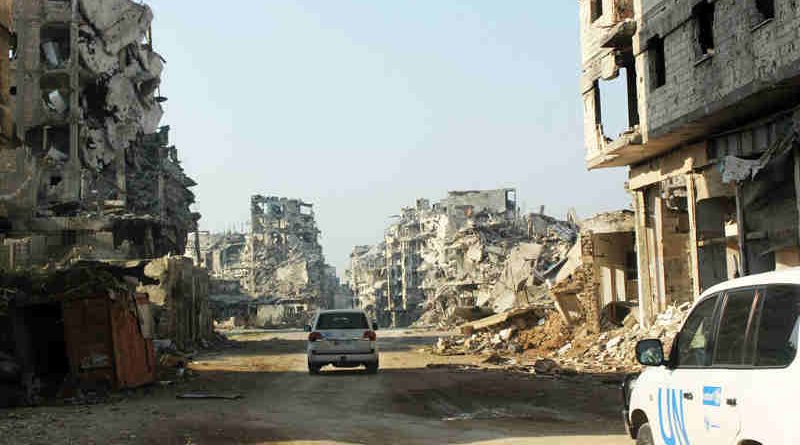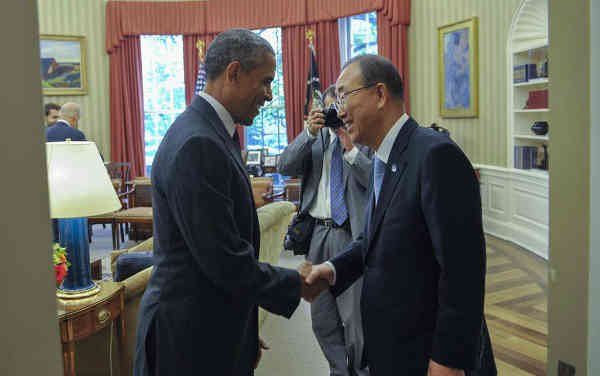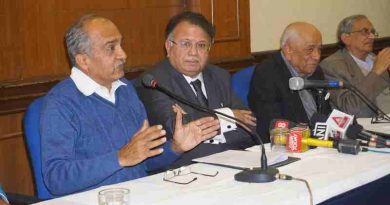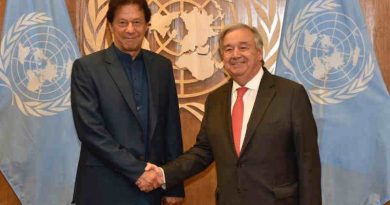UN Reports Upsurge in Civilian Casualties in War-Torn Syria

UN human rights chief Zeid Ra’ad Al Hussein on Wednesday condemned the upsurge in civilian casualties in Eastern Ghouta in Syria amid the recent escalation in airstrikes and ground-based attacks by Government forces and their allies.
Zeid stressed that all parties are obliged under international law to distinguish between lawful military targets and civilians and civilian objects.
The UN High Commissioner for Human Rights also expressed grave concern about the situation of an estimated two million people in Idlib Governorate where increased clashes between Government forces, together with their allies, and the Hay’at Tahrir Al-Sham alliance of armed opposition groups that controls much of the area have reportedly displaced tens of thousands of civilians. Many of these civilians were previously displaced from Hama and Aleppo Governorates.
“The suffering of the people of Syria knows no end,” said Zeid.
Since 31 December, at least 85 civilians, including 21 women and 30 children, have been killed and at least 183 injured in Eastern Ghouta, on the outskirts of Damascus, according to information gathered by the UN Human Rights Office. At least two medical facilities were hit by airstrikes during this period, killing one medical worker and putting one facility out of action.
On 9 January, airstrikes and ground-based strikes hit a residential area in opposition-controlled Hamourya, reportedly killing at least 13 civilians, including four women, four boys and three girls.
The previous day, two airstrikes and simultaneous ground-based strikes on a residential area near a market in the opposition-held town of Duma reportedly killed 12 civilians including five boys and a girl.
There have also been ongoing ground-based strikes by armed opposition groups hitting residential areas in Government-controlled Damascus and its outskirts. On 4 January, a rocket fired into Old Damascus hit the vicinity of a bakery, reportedly killing a woman and injuring 13 other civilians.
The High Commissioner also noted that the failure to evacuate urgent medical cases from Eastern Ghouta runs contrary to its international humanitarian law obligations to collect, care for, and take measures to evacuate the sick and wounded.
In Idlib Governorate, general insecurity and repressive measures have worsened as Hay’at Tahrir Al-Sham moves to consolidate its control over the region. In Idlib City, an explosion on 7 January reportedly killed 28 civilians. In addition, armed clashes between Government forces and their allies and Hay’at Tahrir Al-Sham fighters have intensified, fuelling fears that fighting may swiftly spread across the entire Governorate.
Both Eastern Ghouta and Idlib are considered “de-escalation areas” brokered in May by Iran, Russia and Turkey under the Astana process, with the stated aim to put a prompt end to violence and improve the humanitarian situation.
“I repeat my call for the parties to ensure strict adherence to international law including by ensuring the protection of civilians from the effects of hostilities and to allow unhindered access by humanitarian agencies to provide badly needed aid, in particular to Eastern Ghouta where at least 390,000 civilians have been living under siege for four years,” Zeid said.






